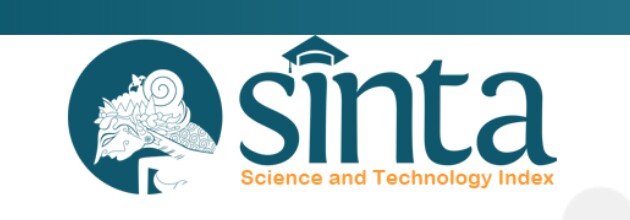Project-Based Learning (PjBL) Mini Drama to Enhance Motivation and Japanese Communication Skills of Tourism Students
DOI:
https://doi.org/10.15294/chie.v12i2.13536Keywords:
project based learning, student's motivation, communication skills, mini doramaAbstract
This study discusses how the project-based learning (PBL) method in the form of mini-drama, can improve oral Japanese communication skills and understanding of Japanese culture in the tourism study program at Garut University. The theme of the mini drama chosen was the differences in the habits of Japanese and Indonesian tourists in the context of hospitality. The mini drama was performed in an annual event organized by the tourism study program. The mini drama is 25 minutes long with three different story segments and conflicts. This study used a qualitative approach to measure the improvement of Japanese speaking ability as well as students' perceptions of the application of learning methods. The results showed that the PBL method applied can improve the Japanese oral communication skills of tourism study program students, especially communication using respectful language varieties (keigo) and formal language varieties (teineigo). Students also gave positive responses to the application of the PBL method because it was considered to increase learning motivation, self-confidence, better understanding of the socio-culture of Japanese society, and the ability to collaborate with students from various levels. This study provides implications for curriculum development and Japanese language learning methods in tourism study programs, as well as contributing to research on the effectiveness of the PBL method in Japanese language learning.
Downloads
References
Adiatma, D., Rukma, D. F., Ramdila, T.U. (2023). Analisis Kebijakan Pembangunan Pariwisata Berkelanjutan Di Taman Wisata Alam Gunung Papandayan Pasca Covid-19. Jurnal Industri Pariwisata, 6(1), 7-13. 2620-9322.
Bessadet, L. (2022). Drama-Based Approach in English Language Teaching. Arab World English Journal, 13(1) 525-533.https://dx.doi.org/10.24093/awej/vol13no1.34
BPS Jakarta (2020). Jumlah Wisatawan Jepang. Retrieved from https://jakarta.bps.go.id/ 12 June 2024
Creswell, J. W., & Garrett, A. L. (2008). The “movement” of mixed methods research and
the role of educators. South African Journal of Education, 28(3), 321–333.
Fujii, Naomi. (2022). Teaching Japanese as a Foreign Language with a Cultural Context. Unpublished thesis, Utah State University. Retrieved from https://digitalcommons.usu.edu/
Herniwati, H., Judiasri, M. D., &Aneros, N. (2018). Traveling guidebook development as
japanese language teaching materials. Advances in Social Science, Education and Humanities Research, 257, 248-253.
Holman, C. L. (2022). Theatre as a means for teaching a second language. GATESOL
Journal, 32(2), 14–26.https://doi.org/10.52242/gatesol.163
Humaira, H. W., Syihabuddin, S., Damaianti, V. S., & Sumiyadi, S. (2022). The effectiveness
of drama-based language teaching in improving students' oral language skills: Longitudinal studies. Cypriot Journal of Educational Science,17(12), 4451-4462. https://doi.org/10.18844/cjes.v17i12.8111
Kanah. (2021). Dampak metode gallery walk dalam pembelajaran bahasa Jepang di jurusan pariwisata Politeknik Negeri Bali. JPBJ (Jurnal Pendidikan Bahasa Jepang), 7(2), 158–170.
Kanah, Harisal, Kasmawati, I. K. S., & Utama, I. G. B. R. (2023). Project-based learning method in Japanese language learning. International Journal of Current Science Research and Review, 6(1), 666-674.
Kapoh, R. J. (2019). The development of Japanese teaching material in tourism vocational school (a development research). Advances in Social Science, Education and Humanities Research, 383, 908-913.
Kusumarini, I., Simpen, I. W., Budiarsa, M., &
Laksana, I. K. D. (2021). Politeness strategy of Japanese hotel staff in Bali. The International Journal of Language and Cultural, 3(1), 9–28. https://doi.org/10.5281/zenodo.4643088
Kusumarini, I., & Zuraida, L. (2022).
Intercultural shock in Japanese language learning at Bali tourism polytechnic.LaculTour: Journal of Language and Cultural Tourism, 1(2). https://doi.org/10.52352/lacultour.v1i2.934
Janti, I. S. (2021). Digital storytelling project for
improving Japanese language conversation skill during coronavirus disease (covid) 19. Proceeding of International Conference on Japanese Studies, Language and Education, 99-112.
Meidariani, N. W., &Meilantari, N. L. G. (2018). Vocabulary variety of Japanese in Tourism field. Journal of Applied Studies in Language, 2(1), 27-34.
Mikouchi, A. K., Akita, K., & Komura, S. (2018). A critical review on project-based learning
in Japanese secondary education. The University of Tokyo Graduate School of Education Journal, 58, 373-385.
Najoan, F. R., Gama, F. I., & Makikama, D.
(2023). The implementation of a project-based learning model to improve students’ skill of interpretation on tsuuyaku course. In R. H. E. Sendouw et al. (Eds.), UNICSSH 2022 (pp. 1557-1566).ASSEHR.
Nguyen, C. T. (2023). Effects of applying drama-
based activities in speaking classes on EFL students’ speaking performance. International Journal of Instruction, 16(3), 991-1012. https://doi.org/10.29333/iji.2023.16353a
Permatasari, K. M., & Agustine, I. (2023). Implemented Project Based Learning On Japanese Writing Skills.International Journal of Educational Research & Social Sciences, 1122, 1122-1125. https://ijersc.org
Putri, N. P. S.U., & Wijaya, E. A. (2023). Japanese language learning for front office based on role playing in diploma iii hospitality program at denpasar academy of tourism. International Journal of Linguistics and Discourse Analytics, 4(2), 118-124.
Tombalisa, N.,F., Fathurachmi.,E., & Wirawan. (2022). Kerjasama Jepang dan Indonesia di Bidang Ketenagakerjaan dalam Program Tokutei Ginou tahun 2019. Interdependence Journal of International Studies, 4(2), 76-81.
Yujobo, Y. J., Ogane, E., Okada, T., Milliner, B., Sato, T., & Dimoski, B. (2016). Efficacy of
promoting awareness in ELF communicative strategies through PBL. The Journal of Asia TEFL, 13(2), 1-18.
Vaishnavi, S., & Ajit, I. (2023). The Effectiveness of Drama-Based Approaches in Improving Speaking Skills among First Generation ESL Learners: An Experimental Study. International Journal of Social Science And Human Research, 6(7),4044-4051.
Downloads
Published
Article ID
13536Issue
Section
License
Copyright (c) 2024 Chi e Journal of Japanese Learning and Teaching

This work is licensed under a Creative Commons Attribution 4.0 International License.











